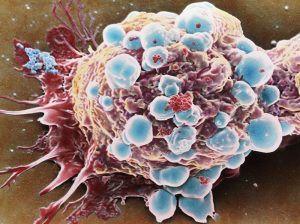Heidi Ledford in Nature:
 A survey of thousands of advanced cancers suggests a way to identify those most likely to respond to revolutionary therapies that unleash an immune response against tumours. But the results highlight how difficult it will be to translate such an approach into a reliable clinical test. The findings1, published on 14 January in Nature Genetics, are the latest line of evidence to suggest that tumours with a large number of DNA mutations are more likely to respond to immunotherapies than are cancers with fewer mutations — and result in longer survival for people who receive treatment. Researchers have long sought a way to select the people — generally a minority of patients — who are most likely to respond to immunotherapies and to spare others from the treatments’ side effects, which can include kidney failure and lung problems.
A survey of thousands of advanced cancers suggests a way to identify those most likely to respond to revolutionary therapies that unleash an immune response against tumours. But the results highlight how difficult it will be to translate such an approach into a reliable clinical test. The findings1, published on 14 January in Nature Genetics, are the latest line of evidence to suggest that tumours with a large number of DNA mutations are more likely to respond to immunotherapies than are cancers with fewer mutations — and result in longer survival for people who receive treatment. Researchers have long sought a way to select the people — generally a minority of patients — who are most likely to respond to immunotherapies and to spare others from the treatments’ side effects, which can include kidney failure and lung problems.
But the immune system is complicated, and it has proved difficult to determine what makes one tumour vulnerable to treatment but allows another to escape unscathed. “The essence of pharmaceutical development is to try and find meaningful but relatively simple guideposts, which is often in defiance of the way that biology works,” says Chris Shibutani, a biotechnology analyst at the investment bank Cowen, in Boston, Massachusetts. One hypothesis is that the more genetically different a tumour is from normal tissue, the more likely it is that the immune system will recognize and eliminate it.
More here.
